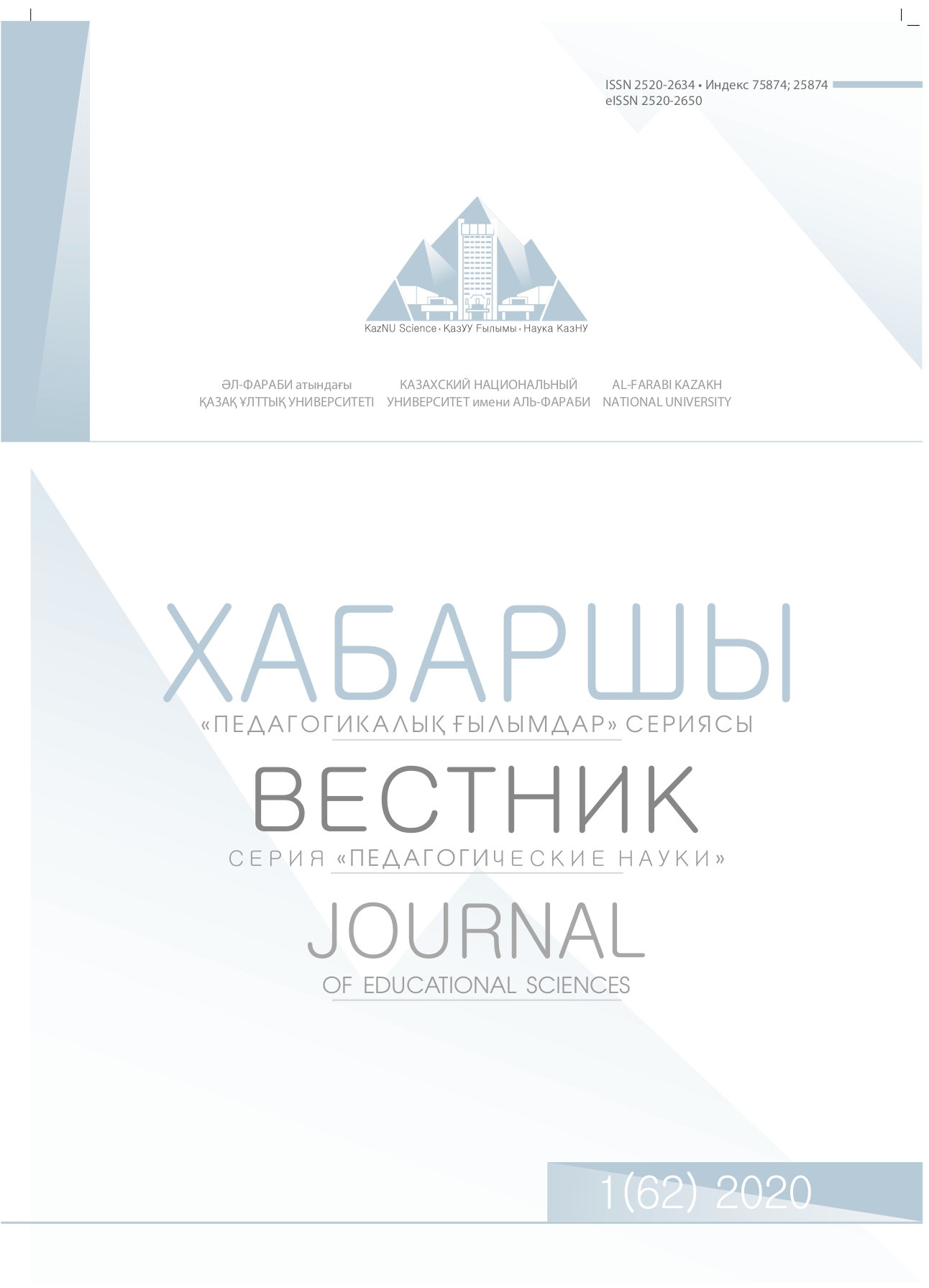CONCEPTUAL PRINCIPLES AND APPROACHES IN THE FOREIGN LANGUAGE NATURAL SCIENCE EDUCATIONAL PROCESS IN A PROFILE SCHOOL
DOI:
https://doi.org/10.26577/JES.2020.v62.i1.06Abstract
This article is devoted to the definition of basic principles and approaches in the foreign-language natural science educational process in a profile school. The authors believe that when realizing the goals of profile training in the profiled classes, it is necessary to provide an in-depth study of selected disciplines from the general secondary education program and provide conditions for differentiating the content of training in accordance with individual abilities and interests. The authors consider that in order to organize and build theoretical and practical activities, a system of conceptual principles and approaches is necessary for the effective implementation of the requirements of modern education and the formation of a competitive specialist in demand on the international labor market. The authors substantiate the pedagogical effectiveness of using a certain set of principles of foreign language education in the formation of the foreign language natural science competence (FLNSC). It is noted that these principles are of particular importance in the study of a professional foreign language. Moreover, it is noted that the principle of scientific and applied adequacy develops the ability of students to work with terms, the principle of functional-operational illustrativeness forms all the speech abilities of students, the principle of cognitive-interpretive projectability develops student’s cognitive activity, the principle of research and problem orientation contributes to the work of students with problem situations. The authors believe that it is necessary to create a continuous connection with vocational education and effectively train senior school students to master vocational education programs. The authors considered conceptual approaches in the foreign-language natural-science educational process: personality-oriented, cognitive-linguistic and cultural, modular-competent and integrative approaches. The article reveals the significance of these approaches in the formation of students’ FLNSC. According to the authors, taking into account approaches and principles in foreign language education helps to improve the quality of education and students level of competency in preparation for a professionally oriented foreign language. Key words: conceptual principles, conceptual approaches, foreign language natural science educational process, profile school.















